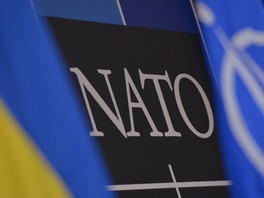Hungary has signed a new 15-year natural-gas supply deal with Russia's state-controlled energy giant Gazprom in a move sharply criticized by Ukraine.
The agreement was signed by Gazprom and Hungarian energy group MVM executives at the Foreign Ministry in Budapest on September 27, during a visit by the Russian company’s chief Aleksei Miller.
The Foreign Ministry of Ukraine, which will lose millions in transit payments, said Hungary's supply deal was a "purely political, economically unreasonable decision" that was taken “to the detriment of Ukraine's national interests and Ukrainian-Hungarian relations.”
The Ukrainian statement said the deal would have “a significant impact on energy security of Ukraine and Europe,” and that it will ask the European Commission to assess whether the agreement respected European energy legislation.
"Hungary will start receiving Gazprom's gas starting from Oct. 1 already via TurkStream and the pipelines of South-Eastern Europe," Gazprom's head Alexei Miller said in a statement.
TurkStream via the Black Sea as well as the Nord Stream pipelines on the bed of the Baltic Sea are part of Russia's plans to bypass its political foe Ukraine when selling its gas to Europe.
In turn, Hungary accused Ukraine of meddling in its internal affairs on Monday after Kyiv criticized it over the signing of a new 15-year natural gas supply deal with Russia's Gazprom.
Hungarian Foreign Minister Peter Szijjarto told a news conference that for Hungary, “energy safety is a matter of security, sovereignty, and economy rather than a political matter."
"(European) gas consumption will not decline, and Gazprom's role will not decline either," Szijjarto said after Gazprom and Hungarian energy group MVM executives signed the deal.
The European Commission had no immediate comment.
A surge in benchmark gas prices as demand rebounds following pandemic lockdowns is a politically charged issue.
When Hungary agreed to the terms of the new supply deal at the end of August, Szijjarto said the price had been agreed but did not give details. On Monday he said retail consumers would continue to pay one of the lowest gas prices in Europe.
The deal will supply around half of Hungary's annual gas consumption of between 9 and 10 billion cubic meters.
Hungary has reduced its reliance on Russian gas in recent years, opening cross-border interconnectors with most of its neighbours.






